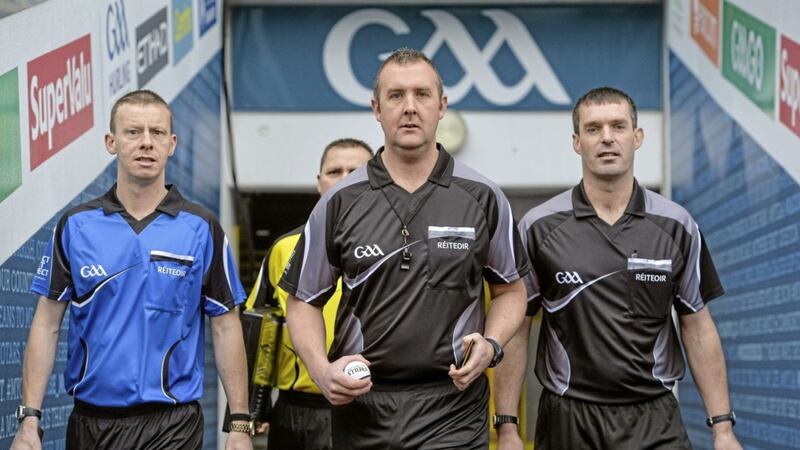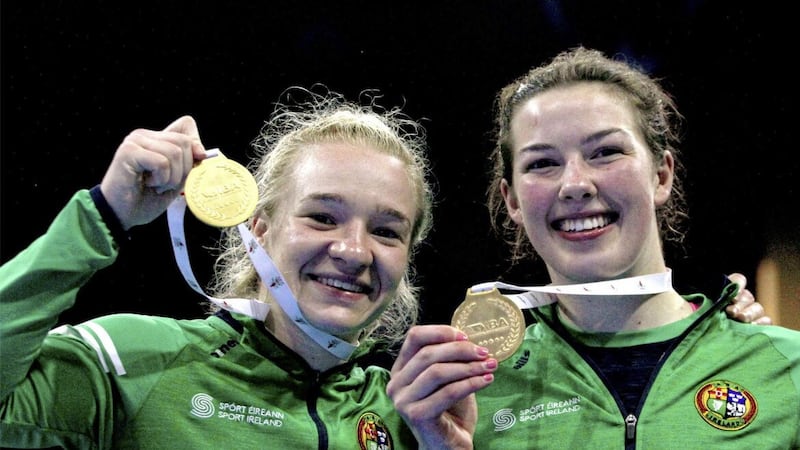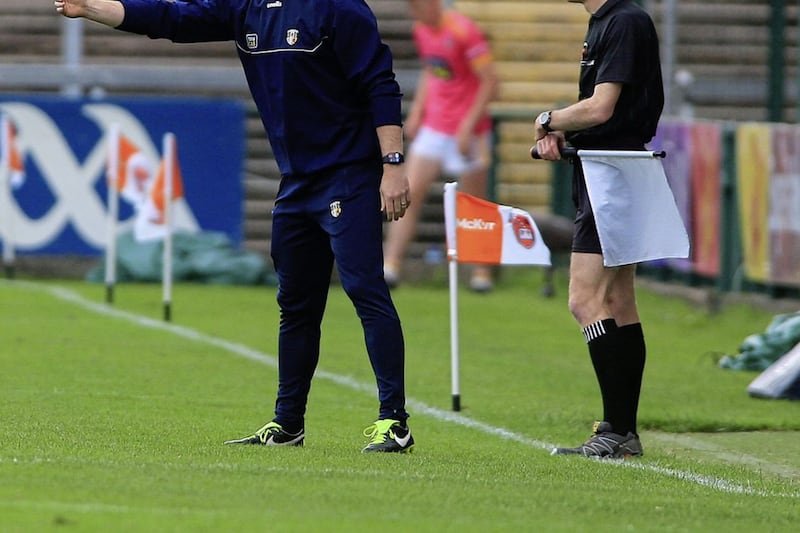YOU know all the stuff about having a new perspective on life and not sweating the small stuff that was de rigueur during the height of the Covid pandemic and lockdown?
Well, it turns out it doesn't take long for old habits to come back to the fore.
About 20 minutes to be precise.
First semi-competitive game, first few 50:50 decisions, and bang, frustrations get the better of me, and I have a go at the referee.
It’s GAA Tourette's syndrome. If we think Covid is a bit on the catchy side, it has nothing on this.
It’s known to make even the mildest mannered of people delusional, foul-mouthed and abusive towards either opponents, supporters or, most commonly of all, the referee.
There is nothing like the sheer audacity or depth of irony on display at Gaelic grounds across the country. The same person can shout abuse at a referee about a poor decision and declare his obvious bias or incompetence then, in the same game, call the other bench a 'bunch of slabbers' for shouting at officials and tell them to 'let the ref do his job'. We've all been there. Don't even try to deny it.
The standard factors for the abuse are there, such as frustrations at decisions or a team or players under pressure lashing out to avert blame from themselves.
Neither of these, however, is the reason I think it is so endemic in our game. 'Cute-hoorism', gamesmanship, game smarts, call it what you like, but culturally it is a massive part of the game. Playing or leaning on the ref is a central tenet of it.
Getting him 'on side' with nice words and gestures or more commonly, probably because it's easier, expressing suitably strong displeasure in the hope of being appeased later in the game with a favourable decision.
In the not too distant past, clubs weren't exactly shy about gaining a reputation that meant, for their safety, officials knew it was advisable to lean a certain way in their decision making at particular clubs.
The old Galatasaray banner, "Welcome to Hell" springs to mind regarding plenty of grounds.
And while as opposition players, you knew these places were 'tough to go to', at least you arrived up with a full panel of players and supporters with you.
Think of the lonely referee arriving up by himself or a few of his mates. I can imagine an umpire friend saying to his referee buddy as they arrive up to one of those Cead Mile Failte loughshore places, "Alright Jimmy, no fancy principled stuff the day, a two-point home win here and we all go home happy".
This attempt to influence or castigate officials is as much part of our game as the 22-year-old trying to get into games as a U16.
It is at its most effective when there is ambiguity about rules and if there is one thing the GAA is better at than making new rules its making them rules tough to consistently implement.
The most recent batch has only enlarged the minefield for beleaguered officials and renewed the opportunities for gamesmanship, remonstration and abuse.
Undoubtedly some decisions are on the head-scratching side of things, but the vast majority are either correct or in the shades of grey where it is open to interpretation.
Many times when doing commentary at games, I have found myself holding back judgement until I got a second look on a nearby monitor.
The advent of VAR in the Premiership has made it clear how impossible it is to be 100% sure about decisions. Even without that, watch any match in a living room or bar full of people and the debates over decisions or cards even among neutrals make the same conclusion evident.
Refereeing is difficult, the rules are just about understandable on paper, but when applied to a fast paced game situation with generous helpings of gamesmanship added in for good measure, it becomes an impossible task.
Doing my video review of last week’s game I noted at least 20 times where skill execution or decision-making could be improved. Not uncommon across any team or game. The referee, even with my own bias, only made four or five calls that I'd argue with.
A tiny percentage of his overall decisions. Recognising this is one thing, taking a step back when it comes to questioning refereeing decisions on game day is another.
This whole circus came to mind when I came across a tweet from Derry referee Brendan Quinn after he reffed the Loup vs Bellaghy game last weekend.
After the match, he posted on Twitter: "Jeez, that was a tough night at the office. Apologies to @BellaghyGAC and @anlubgac. I'm human. I made mistakes. If it was easy everyone would be at it".
Now, I didn't see the game so can't comment on the decision(s) in question, but his very human apology hit home.
The tone and the profile pic which showed him with his happy family, was a firm reminder that these men fulfil probably the toughest role in GAA and yet go home to the same home lives as the rest of us.
The sustained level of abuse we can be guilty of giving them cannot go on being accepted as part of the game. Just as the consistency and quality of refereeing must improve (not least by simplifying the rules, or at the very least leaving them alone for a while), its time our treatment of referees radically changed.
As I've pointed out, I'm certainly no saint in this regard. Still, I would love a firm rule to be applied that any aggressive questioning, abuse, shouting, aggressive or even petty posturing at a referee would all immediately be met with 10 minutes in the sin bin.
Authorities have so often talked about it and it’s actually there in the current black card rules, yet they’ve never applied it with any purposeful intention. Actions, as usually the case, speak louder than words.
If the GAA directed that, from the start of 2021, all such behaviour towards officials be sanctioned with a black card, it would eradicate the culture from our pitches within weeks, inside the lines at least.
As for me, this article is like writing lines as a child. ‘I must not shout at the referee; I must not shout at the referee’. Yet I know full well that as soon as I step on the field and things hit a dodgy patch this weekend the familiar feeling and need to remonstrate will reappear. We are all human indeed!







